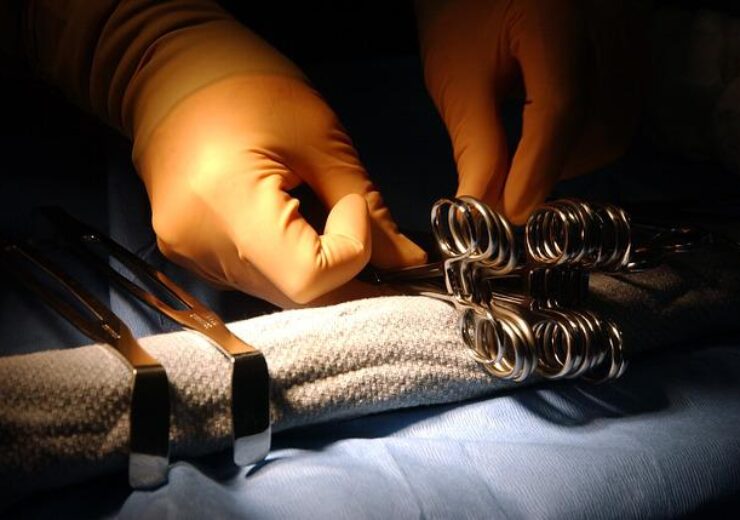The new hernia mesh is designed based on the company’s patented formulation, where polypropylene mesh is embedded with antibiotics minocycline and rifampin to reduce the risk of microbial colonisation during surgical implantation

The synthetic mesh is embedded with antibiotics. (Credit: David Mark from Pixabay)
Ariste Medical has received 510(k) approval from the US Food and Drug Administration (FDA) for its drug-embedded, synthetic hernia mesh.
The new hernia mesh is designed based on the company’s patented formulation to reduce the risk of microbial colonisation during surgical implantation.
Made of polypropylene material, the synthetic mesh is embedded with antibiotics minocycline and rifampin to eliminate the bacterial contaminations (MRSA, E. coli) at the surgical sites.
The formulation can be applied to various medical devices and facilitates the inclusion of any drug to create drug and device combination against infection, restenosis, thrombosis, and inflammation, said the pre-commercial drug + device company.
Ariste co-founder Lisa Jennings said: “Regulatory clearance of the Ariste antibiotic embedded mesh is an important milestone toward reducing incidence of implant bacterial colonization in open ventral hernia repair.
“Our patented, novel technology serves as a platform for mitigating failure of other implants due to bacteria burden, as well as for targeting complications due to restenosis or acute thrombosis.”
According to the company, ventral hernia repair is the most commonly performed surgery in the US, and is often associated with elevated rates of infection.
The mesh-related infection after surgical repair of ventral hernia ranges from 8% to 40%, based on patient risk factors and the complexity of the surgical case.
Ariste said that the current regulatory approval represents 15 years of research, during which it has received 18 patents and developed unique formulations.
Established in 2007, Ariste develops drug-embedded surgical implants to address common causes of device failure, improve patient outcomes and reduce costs of care.
In addition to the drug-embedded mesh, the company has also developed similar approaches for vascular grafts and catheters.
Ariste board member Michael Rosen said: “Infection following open hernia repair continues to be a challenge that leads to a vicious cycle of reoperations, negatively impacting patients’ quality of life, and increasing the economic burden of health care and driving up costs for health systems.
“Yet—infections are preventable. The Ariste mesh provides surgeons with a cutting-edge tool for reducing bacterial colonization in and around the mesh implant; and preventing infections will lead to better long-term patient outcomes and reduced costs of care.”
